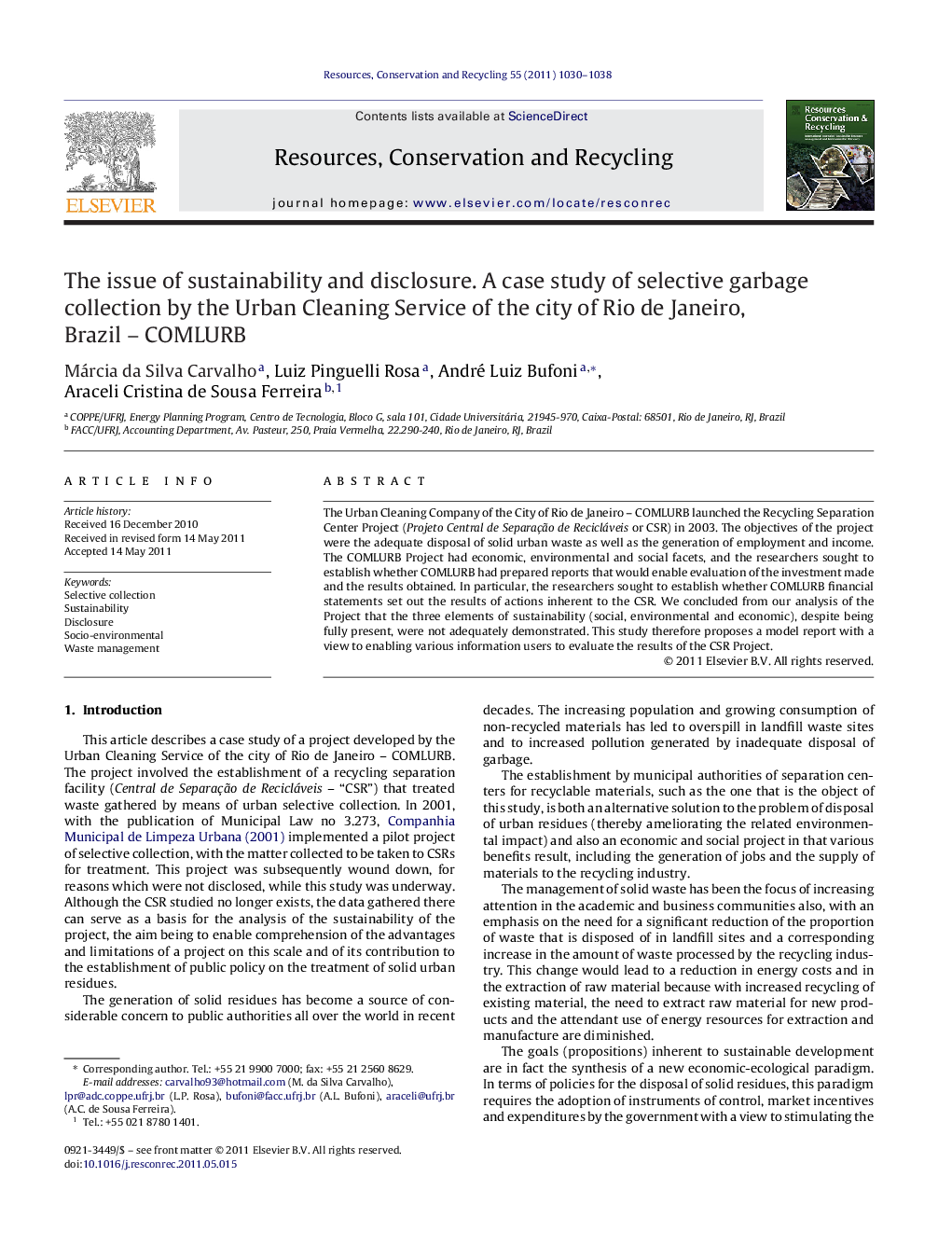| Article ID | Journal | Published Year | Pages | File Type |
|---|---|---|---|---|
| 1063458 | Resources, Conservation and Recycling | 2011 | 9 Pages |
The Urban Cleaning Company of the City of Rio de Janeiro – COMLURB launched the Recycling Separation Center Project (Projeto Central de Separação de Recicláveis or CSR) in 2003. The objectives of the project were the adequate disposal of solid urban waste as well as the generation of employment and income. The COMLURB Project had economic, environmental and social facets, and the researchers sought to establish whether COMLURB had prepared reports that would enable evaluation of the investment made and the results obtained. In particular, the researchers sought to establish whether COMLURB financial statements set out the results of actions inherent to the CSR. We concluded from our analysis of the Project that the three elements of sustainability (social, environmental and economic), despite being fully present, were not adequately demonstrated. This study therefore proposes a model report with a view to enabling various information users to evaluate the results of the CSR Project.
► Although the waste recycling project had socio-environmental benefits, COMLURB did not measure these benefits in economic terms. ► The company did not produce financial reports indicating the investment, expenditure and returns obtained from the CSR project. ► It is possible to demonstrate the effects of selective collection process on externalities using the three elements of sustainability. ► The benefits may include a reduced need for health care because of a reduction in pollution-related illness. ► Benefits can also increase in the production and sale of recyclables to specific markets or to others companies. ► In the company, the effects of this management are evident in the savings obtained by the avoidance of degradation.
